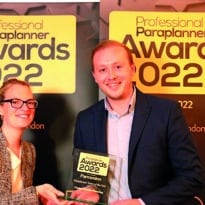Cash flow
Turning to technology and software, the firm uses IRESS (Avelo as was) for its back office and Truth from Prestwood Software for cash flow modelling. John believes cash flow modelling is one of the most powerful of client relation tools available to financial planning firms.
“Cash flow is used for the vast majority of our clients. If you have a decent tool you can calculate a person’s net worth and project it forward. You can apply inflation rates, investment growth rates and factor in changes in the client’s expenditure patterns when they retire. If a client wants to know what would happen to their wealth if they retired a few years earlier, you can calculate it.”
Cash flow modelling can also be used to show that the client’s current financial position isn’t sustainable – they may be spending too much. In addition, there is the ability to model in investment losses and see if the client’s plan can withstand those losses. These are equally as important, he says. “It takes a while to get a cash flow model built but once it is, generally it doesn’t take long to make the modifications needed to give the answers to clients.
Cash flow is tying in the decisions you’re making now and why you are making them, what they are for. It’s a real confidence booster for clients.”
Qualifications
The question around how qualified a paraplanner needs to be is a recurring one. So as someone who is going through the process of attaining chartered and certified status, how important does John feel it is for paraplanners to look to obtain this level of qualification? “It depends, I suppose, on your role within the firm – to what extent you are used, how detailed your work becomes and how involved you are in things like the investment decisions,” he says.
“Certainly, without some good qualifications behind me I wouldn’t be comfortable in dealing with the kind of work I get involved with on a day-to-day basis. To my mind, we should be aiming to be at least on a par with the advisers we are working with, if not more qualified.
Having a high degree of technical knowledge and experience can help if, for example, you have to challenge your adviser. If that is done in the right way and you have the knowledge to back it up which comes from the qualifications, and it improves the client outcome, then that is better for the firm.”
Having the backing of your firm in achieving qualifications is also essential he believes. “BpH believe it is massively important that I progress. They want me to get to level 6 which I’m well on the way to doing and they are more than happy to pay for that and give me the time I need to study.”
But how unusual is BpH in giving that kind of support? “I speak to a lot of paraplanners and pretty much all of them are getting a lot of support from their adviser firms,” John says. “It makes sense because, ultimately, the more a paraplanner is qualified the more their firm will get out of them.”
Growth in paraplanner market
While paraplanning has certainly increased in profile over the past few years – spurred on by the RDR – whether it will continue to grow will be determined by just how much the financial adviser market develops, John believes. “Value and recognition of paraplanners has grown a lot of the past few years and you can get a gauge of just how much that may continue by looking at the job market for paraplanners at the moment.
Some advisers don’t need paraplanners but for a firm working in the lifestyle financial planning area then paraplanners are very useful. With RDR and adviser firms having to sell their fee proposition to clients I know of several firms that are moving from transactional advice to lifestyle model and if more firms trend in this way, they will find that they need paraplanners.”
There is certainly no going back to a time when paraplanners weren’t mainstream, he believes. “If you think about it, what adviser wouldn’t want a paraplanner there doing a lot of their work, with the technical knowledge to back it up and being a point of contact for clients. It enhances the view of the firm and the adviser,” he points out.
Would you become an adviser?
Our final question to John is the age old one, is his ultimate aim to become an adviser? “I used to think paraplanning was a stepping stone but that’s not necessarily the case; and many more paraplanners are seeing it as a career these days,” he answers. “There’s so much I love about being a paraplanner that I wouldn’t necessarily want to give up to become an adviser. That said, I think with the right set and number of clients, I could do a hybrid role – part paraplanner, part adviser – advising a certain number of clients and continue the paraplanning work that I’m doing.
“But for the moment, my plan is to become QCF level 6 and Chartered and then I’ll see where I go from there.”




























